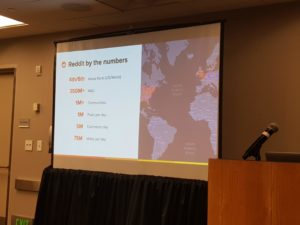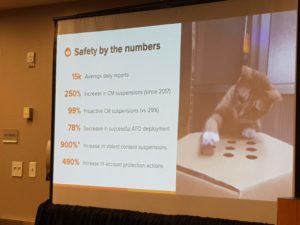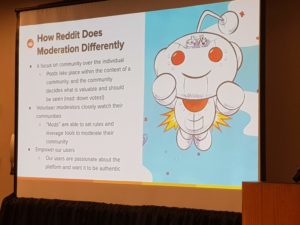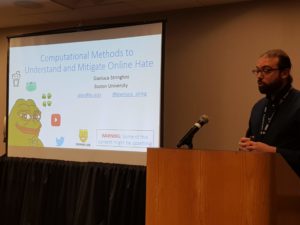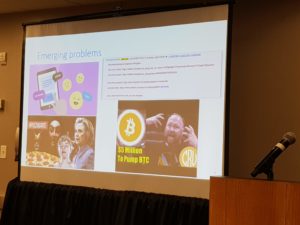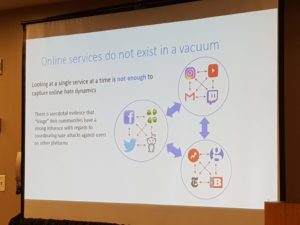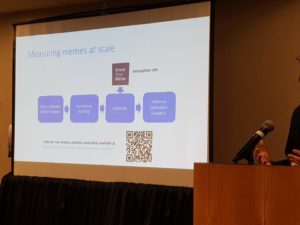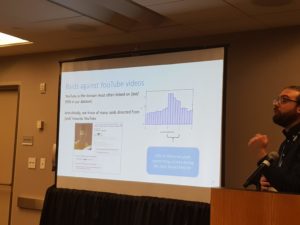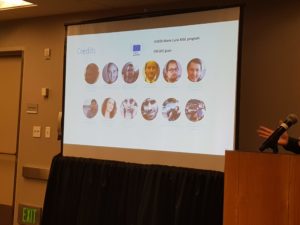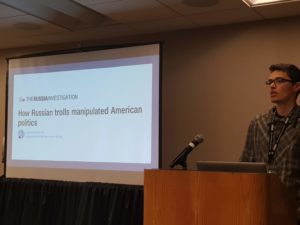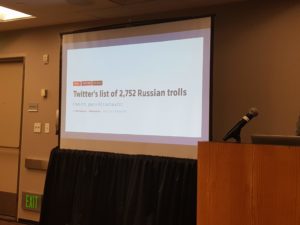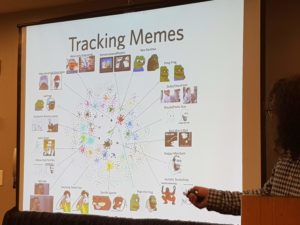Proposed schedule for CyberSafety 2019
|
| Speaker: Jeffrey Tang & Julie Hollek, Twitter
Title: Stemming the tide of social media manipulation – Techniques, challenges and complications
Abstract:
Bio:
|
| Speaker: Gianluca Stringhini, Boston University
Title: Computational Methods to Understand and Mitigate Online Hate
Abstract:Online hate on social media is becoming a serious problem. Aggression is often not the act of single individuals,
but rather the result of coordinated activity between like minded people who gather on polarized online communities, identify suitable
targets, and carry out their attacks. Studying this phenomenon is hard, in part because it is not a purely technical problem, in part
because this malicious activity unfolds across multiple online services, and the research community currently lacks effective tools to keep
track of information that is not contained to a single platform. In this talk, I will present our research on studying the modus operandi of
attackers that orchestrate and execute coordinated hate attacks on social media, which we call “raids.” I will show that online polarized
communities such as 4chan’s politically incorrect board are particularly effective in performing this type of attack, often causing great
psychological harm to their victims, and that it is possible to identify raids by looking at coordinated activity happening on different
platforms (e.g., a thread on 4chan and the comments on a YouTube video). Finally, I will discuss potential countermeasures against this phenomenon.
Bio:
|
| Speaker: Barry Bradlyn (University of Illinois at Urbana-Champaign)
Title: TBD
Abstract: TBD
Bio:
|
| Speaker:Tyler Otto
Title: Content Security at Reddit
Abstract:Reddit’s moderation and governance model is unique within the internet landscape. In addition to its sitewide policies and
enforcement, Reddit has cultivated a community-driven ecosystem that empowers users to work with volunteer community moderators and internal
company admins to help curate quality content and reduce the exposure of rule-breaking content and ensure the content is fitting with community
standards. Increasingly, Reddit is using data science to aggregate and enrich these signals, allowing us to catch issues that would be more
challenging for an individual to notice. This investment in data science has drastically improved the speed and efficacy with which Reddit is
able to respond to threats. By better leveraging analytics, Reddit has been able to increase the percentage of content that is taken down
proactively from 27% in 2017 to around 99%.
Bio:Tyler Otto is the Director of Threat Analytics at Reddit. His team leverages data science for the detection and
mitigation of scaled threats targeting Reddit. This includes things like spam, vote manipulation, site integrity, and malicious bots.
Additionally, his team builds models to help improve traditional operations teams be more effective and efficient. Prior to running threat
analytics at Reddit, Tyler lead the product Data Science team at Reddit. Before Reddit, he was the Head of Data Science at Hipmunk, a
travel startup that was acquired by Concur.
|
Full Presentation Session 1
- Disinformation Warfare: Understanding State-Sponsored Trolls on Twitter and Their Influence on the Web,
Savvas Zannettou, Tristan Caulfield, Emiliano De Cristofaro, Michael Sirivianos, Gianluca Stringhini and Jeremy Blackburn.
- The Subtleties of Profanity in Abusive Language: Emergent Words and Meanings,
Hongyu Gong, Alberto Valido, Katherine Ingram, Suma Bhat, Giulia Fanti and Dorothy Espelage
- Who Falls for Online Political Manipulation?,
Adam Badawy, Kristina Lerman and Emilio Ferrara.
- An empirical study of malicious threads in security forums,
Joobin Gharibshah, Zhabiz Gharibshah, Evangelos E. Papalexakis and Michalis Faloutsos
|
Short Presentation Session 1
- Understanding Cyberbullying on Instagram and Ask.fm via Social Role Detection,
Hsien-Te Kao, Shen Yan, Di Huang, Nathan Bartley, Homa Hosseinmardi and Emilio Ferrara.
- Hi Doppelganger: Towards Detecting Manipulation in News Comments,
Jan Pennekamp, Martin Henze, Oliver Hohlfeld and Andriy Panchenko.
- Detect Me If You Can: Spam Bot Detection Using Inductive Representation Learning,
Seyed Ali Alhosseini, Bintareaf, Najafi and Meinel.
|
Full Presentation Session 2
- Robust Cyberbullying Detection with Causal Interpretation,
Lu Cheng, Ruocheng Guo and Huan Liu
- Less is More: Semi-Supervised Causal Inference for Detecting Pathogenic Users in Social Media,
Hamidreza Alvari, Elham Shaabani, Soumajyoti Sarkar, Ghazaleh Beigi and Paulo Shakarian.
- Characterizing Activity on the Deep and Dark Web,
Nazgol Tavabi, Nathan Bartley, Andres Abeliuk, Sandeep Soni, Emilio Ferrara and Kristina Lerman
- “I was told to buy a software or lose my computer. I ignored it”: A study of ransomware,
Camelia Simoiu and Sharad Goel
|
Short Presentation Session 2
- Domain Generation Algorithms detection through deep neural network and ensemble,
Shuaiji Li, Tao Huang, Zhiwei Qin, Fanfang Zhang and Yinhong Chang.
- Bot Electioneering Volume: Visualizing Social Bot Activity During Elections,
Kai-Cheng Yang, Pik-Mai Hui and Filippo Menczer.
- Fraudulent Cryptocurrency Manipulations on Social Media,
Mehrnoosh Mirtaheri, Sami Abu-El-Haija, Fred Morstatter, Greg Ver Steeg and Aram Galstyan.
|


